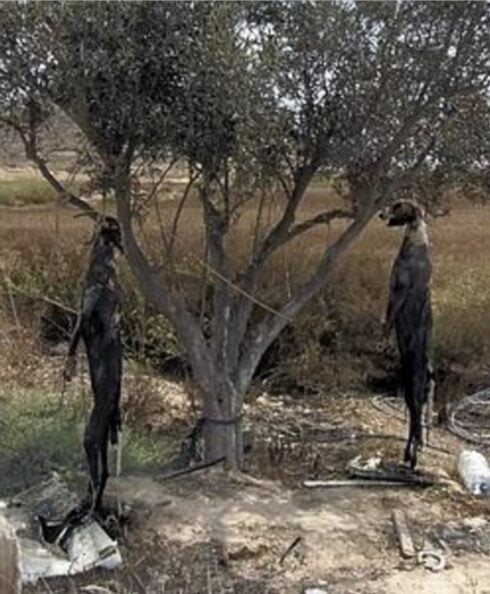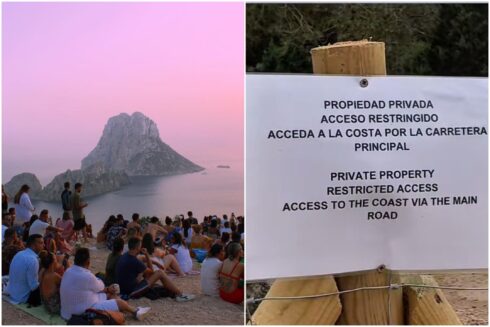By Sigrun Hvalvik
ON a cold January morning a galgo named Luna limped into a village, her ribs protruding from weeks without food. Once prized for her speed during the hunting season, she had been discarded like an old tool.
Luna’s story is not unique – it’s the fate of thousands of galgos. Every year tens of thousands of hunting dogs, primarily galgos and podencos, are abandoned or killed in Spain. While these elegant creatures once represented loyalty and speed, many now face starvation, abuse or worse when the hunting season ends.
How can a nation – as rich on culture as Spain allow one of its most iconic dog breeds suffer in silence? What does it say about a society when its most loyal companions are discarded the moment, they are no longer useful? In Spain, the plight of galgos and podencos raises uncomfortable questions about tradition, ethics and progress.
Tradition and culture
Hunting with galgos and podencos has been part of rural Spanish life for centuries. These dogs are prized for their speed, stamina and skill, making them essential tools for hunters. However, in many rural areas animals are still seen primarily as utilitarian rather than companions, which shapes how these dogs are treated. After the hunting season thousands of galgos and podencos are deemed useless or too costly to keep. Rather than rehoming them, they are often abandoned, neglected or killed, often in very brutal ways.
Many hunters breed their own dogs in large numbers to produce the complete hunting companion. This leads to an oversupply of dogs, and those that don’t meet the desired hunting standards, due to age, injury or temperament are discarded. Because breeding is so widespread and inexpensive, it is often easier for hunters to simply breed new dogs each year than to care for older ones. This perpetuates a cycle of overbreeding, neglect and abandonment. The cultural mindset here is tied to tradition. Dogs are seen as expendable tools, not lifelong companions. Some traditions include horrific practices for disposing of galgos after the hunting season.

Hunters abandon dogs in remote areas; they hang the Galgos by their necks with their feet barely able to touch the ground. They hang for days before finally dying of starvation and thirst. Other methods are throwing dogs into holes in the ground with no food or water, beat or stone them to death, or tie them in plastic garbage bags and bury them alive. Some are abandoned in the countryside, often with stick stuck between their jaws so they can’t eat or drink, and slowly starve. These cruel acts can be associated to a superstition that the next hunting season will be more fruitful and is rooted in tradition.
In some rural areas there is resistance to external criticism, as it can be seen as an attack on Spanish culture. Many hunters argue that their use of galgos and podencos is a proud tradition, and any criticism of their treatment of the dogs is met with defensiveness. This cultural mindset can make it difficult to enforce or strengthen animal welfare laws, especially when they challenge longstanding practices.
In February 2023, the Spanish government approved a highly anticipated animal welfare law, such as regulating the breeding and sale of animals and clarifying the minimal living conditions in which it is legal to keep a pet. However, hunting dogs are exempted from these regulations. This reflects the influence of hunting traditions in politics and local governance, where hunting is seen as an important cultural and economic activity. If the responsible ownership regulations that now apply to all dog owners would be applicable to galgo and podenco owners as well, any abuse or mistreatment would be punishable by fines and perhaps prison.
It’s important to recognize that the suffering of galgos and podencos is not representative of all hunters or Spaniards. Many individuals and organizations in Spain are working to address this issue, advocating for changes in how traditions are practiced and promoting ethical treatment of these animals. However, to fully address the problem, it requires challenging cultural norms and offering practical solutions that respect tradition while improving animal welfare. This interplay between tradition and suffering makes the issue particularly complex but also an opportunity to modernize and evolve longstanding practices.

I have been deeply moved by – and engaged in – the plight of galgos and podencos in Spain. At the same time, I have been overwhelmingly impressed by the extensive work that is done to improve their situation; particularly by the work that is done in Spanish shelters to save and rehabilitate these noble and gentle dogs physically and heal them emotionally. My care for Spanish hunting dogs thus, stem from a combination of empathy, shared values, and a sense of global responsibility for animal welfare.
Here are some reasons why I, a Norwegian woman, care about hunting dogs in Spain, and support the work done for them.
- Compassion for animals transcends borders. The suffering og galgos and podencos isn’t just a Spanish issue. It’s a reflection of how we, as humans, treat vulnerable beings that belongs to us. To recognize their pain and advocate for change is an act of solidarity with these voiceless animals, just as we would care for mistreated animals in our own country.
- In Norway, there is a strong cultural emphasis on animal rights and welfare. Galgos and podencos suffer in ways that would be considered unacceptable by Norwegian standards, such as abandonment, neglect, and cruel practices like hanging or starvation. If these values matter at home, why wouldn’t they matter abroad?
- The challenges faced by galgos and podencos, overbreeding, abandonment, and neglect are not unique to Spain. They are part of a global problem in how animals are often treated as disposable commodities. By advocating for these dogs, one contributes to a broader movement for ethical treatment of animals worldwide.
- For me advocating for and supporting galgos and podencos provide a personal fulfillment. I can make a difference in the lives of vulnerable and exposed creatures.
- Galgos and podencos are not just hunting tools. They are intelligent, loyal and loving dogs who deserve to live dignified lives. Families who adopt these dogs describe them as wonderful pets. By caring and raising awareness one can contribute to shift perception of these animals from tools to valued companions.
Imagine a Spain where galgos and podencos are celebrated not just for their speed but for their lives. A Spain where every hunting dog finds a home after the season ends. This vision is possible – but only if we confront the current reality.










Please don’t disseminate such accusations without checking the sources. The actual figure of abandoned hunting dogs is 8588. https://www.newtral.es/abandono-perros-espana-galgos-podencos-cifras/20211026/. This careless journalism seems patronizing and a lack of respect to your host country.
That said, it is very valuable to pursue the well-being of dogs. To set this in context, it would be useful to compare reliable statistics with other European countries.